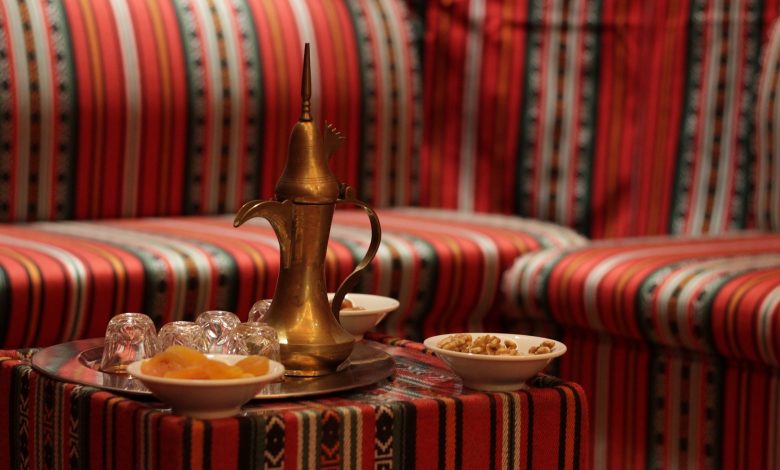
WHO: Safe Ramadan practices in the context of the COVID-19
منظمة الصحة العالمية: إرشادات للممارسات الرمضانية الآمنة في ظل كوفيد-١٩
Ramadan is the ninth month of the Islamic calendar and is observed by Muslims worldwide as a month of fasting from sunrise to sunset, prayer and reflection. It is marked by numerous religious and social gatherings, as families and friends unite to break their fast together, after sunset during iftar or before dawn during suhour.
As this year Ramadan is expected to start on 23 April and end on 23 May, thus falling during the ongoing pandemic of COVID-19, WHO has issued dedicated guidance on Safe Ramadan practices in the context of COVID-19. The purpose is to provide advice on gatherings occurring during the month of Ramadan, or immediately preceding and following it. Guidance was released on 15 April and is available in Arabic, English, French, Russian and Spanish.
The document is addressed to national health authorities with the aim of facilitating their role in establishing policies for events. Early involvement of religious leaders in the decision-making process is also recommended, so that they may disseminate information to the faithful community. In general, a strong communication strategy should ensure that decisions taken are explained to all those concerned in a timely and consistent manner.
As a first step, WHO recommends that decisions to restrict, modify, postpone, cancel or proceed with holding a mass gathering during Ramadan should be based on a rigorous and standardized assessment of the risks associated with such events in terms of contributing to the spread of COVID-19.
Detailed guidance on risk-assessment protocols is included in Practical considerations and recommendations for Religious Leaders and Faith-based Communities in the context of COVID-19, with a risk-assessment tool and decision tree. Cancelling in-person events and holding them virtually, using platforms such as television, radio, digital and social media is therefore an option to be considered, especially if risk of transmission is significant.
The decision-making process can be facilitated by some overarching considerations related to physical distancing: for example, a distance of at least one metre (three feet) between people should be strictly maintained at all times during the event.
People who are feeling unwell or have any symptoms of COVID-19 – as they may transmit the infection, and older people and anyone with pre-existing medical conditions should be discouraged from attending, as they have higher likelihood of developing severe illness.
If it is decided that physical gatherings shall go ahead, WHO recommends that mitigation measures be applied to further decrease risk of COVID-19 transmission during the planned event.
Mitigation measures include: improving the venue’s facilities and arrangements (e.g. holding the event outdoors rather than indoors, or ensuring adequate ventilation), encouraging healthy practices by attendees (e.g. handwashing or taking safety steps in mosques, such as using personal prayer rugs), and ensuring that premises and often-touched objects are thoroughly and regularly cleaned.
The document also provides recommendations tailored to many social activities typical of Ramadan, such as the practice of charity (sadaqat or zakah), or the traditional iftar banquets, suggesting ways to safely live in full the spirit of Ramadan as the COVID-19 pandemic continues. Additional considerations pertaining to fasting, physical activity, healthy diet and nutrition, and tobacco use, as well as to mental and psycho-social health and response to domestic violence are also proposed with the aim of clarifying misconceptions, and providing advice that may help make the most out of the holy month of Ramadan and its myriad of celebrations.
الدوحة – الشرق
أصدرت منظمة الصحة العالمية إرشادات للقيام بممارسات رمضانية آمنة في سياق جائحة كوفيد-19، حيث أكدت أنه لم تجرِ دراسات حتى الآن لمعرفة ارتباط المرض بالصيام، لكن بإمكان الأصحاء الصوم، وينصح المرضى بكوفيد-19 بأخذ رخصة شرعية بالامتناع عن الصوم، وذلك بالتشاور مع أطبائهم.
وأكدت المنظمة أن التغذية الصحية السليمة خلال فترة الصيام، وشرب كميات كافية من الماء بين الإفطار والسحور، وتناول الأغذية الطازجة غير المعالجة كافية للوقاية من الأمراض وتقوية الجهاز المناعي للجسم. وفيما يتعلق بالمدخنين، أوضحت المنظمة ضرورة الامتناع عن تعاطي التبغ في كل الظروف خاصة في شهر رمضان وفي ظل انتشار الجائحة، لاسيما أن تلامس الأصابع والفم بالسجائر والشيشة يسهّل كثيرا انتقال العدوى.
وشددت المنظمة على أهمية اتباع الأفراد في أي تجمع إجراءات التباعد الجسدي، والحفاظ على مسافة متر واحد على الأقل بين الأشخاص في جميع الأوقات، والالتزام بالتسليم عن بعد دون ملامسة بالأيدي أو التقبيل. كما أكدت على أهمية منع أي تجمعات مرتبطة بشهر رمضان، مثل التي تحدث في الولائم والأسواق والأماكن الترفيهية، والتعويض عنها ببدائل افتراضية مثل التلفزيون والإنترنت ووسائل التواصل الاجتماعي، لكن إذا دعت الضرورة للتجمع، فإنه ينبغي أخذ الحيطة والحذر واتخاذ كافة التدابير الممكنة للحد من انتقال كوفيد-19.
كما دعت منظمة الصحة العالمية إلى التخفيف من أثر التجمعات خلال شهر رمضان المبارك، وفي حال السماح بإقامة تجمع في رمضان فينصح بإقامته في أماكن مفتوحة أو أماكن مغلقة فيها تهوية كافية، مع تقصير مدة الفعالية أكبر قدر الامكان. ويمكن تقسيم التجمعات إلى مجموعات صغيرة بدلا من إحياء الفعاليات في تجمعات كبيرة، والحفاظ على التباعد الجسدي من خلال تعيين أماكن خاصة بكل فرد عند أداء الصلاة والوضوء، وتنظيم الدخول إلى المساجد وأماكن التجمعات والخروج منها لمنع التدافع والتجمهر.
المصدر: al-sharq



